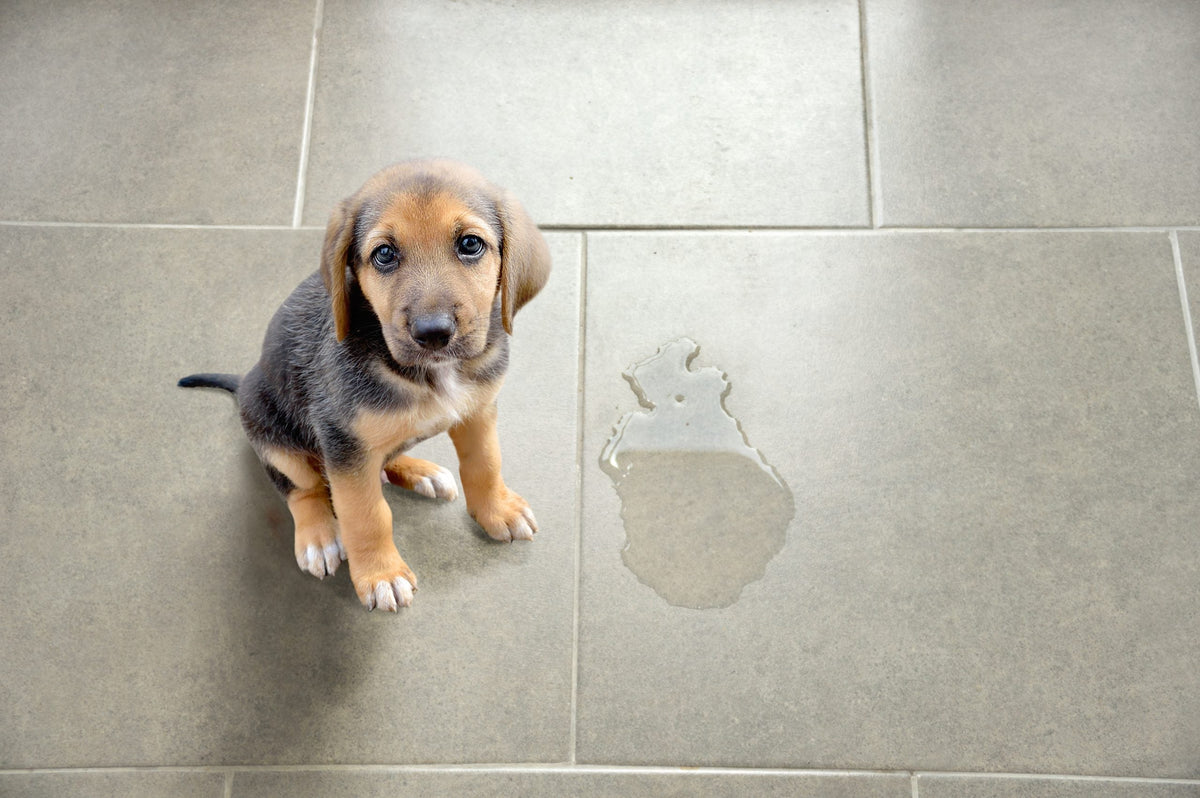In 24 cities

About Puppy Urination Patterns: Training, Cleanliness, and Health Monitoring
|
|
Time to read 2 min
Get product availability and delivery timelines based on your location.
Are you sure you want to delete this address?
Help us ensure a smooth delivery
Help us ensure a smooth delivery
SIZE GUIDE
|
|
Time to read 2 min
Understanding and managing your puppy's urination patterns is a crucial aspect of pet ownership that can significantly affect both your lives. Puppies, much like human infants, have small bladders and limited control over their urination, leading to frequent bathroom breaks.
However, as they grow, their bladder capacity increases, and with the right training, they learn to control their bladder better. This article will delve into the fundamentals of puppy urination patterns, effective training strategies, maintaining cleanliness, monitoring for health concerns, and the importance of consulting a veterinarian when necessary.
Training a puppy to urinate in the appropriate places requires consistency, patience, and positive reinforcement. Here are some tried and tested strategies:
Follow Consistent Schedule: Establishing a regular schedule for bathroom breaks is crucial. Puppies typically need to go outside immediately after waking up, after meals, and during and after play sessions.
Designate a Potty Area: Consistency is key. Choose a specific spot outside where you take your puppy every time. This helps build a strong association between the location and the act of urinating.
Positive Reinforcement: Rewarding your puppy with treats , praise, or affection immediately after they urinate in the designated spot reinforces the desired behaviour.
While training your puppy, accidents are inevitable. Here are ways to protect your home and effectively clean up:
Protective Measures: Utilize waterproof covers for bedding and furniture, and place pee pads in strategic areas, especially in parts of your home where your puppy spends the most time.
Prompt Cleanup: When accidents happen, clean them up immediately with enzymatic cleaners . These cleaners are effective in removing stains and odours, thereby preventing your puppy from being attracted to the same spot for future accidents.
As you navigate through the process of potty training, it's essential to stay vigilant for any signs of health issues related to urination. These include:
Changes in Urination Patterns: An increase in frequency or noticeable difficulty in urinating can indicate health issues.
Discoloration or Straining: Pay attention to the colour of your puppy's urine and any signs of straining, which could signal a urinary tract infection or other health concerns.
Behavioural Changes: Signs such as discomfort, lethargy, or a sudden loss of appetite warrant closer attention.
If you observe any concerning changes in your puppy's urination patterns or overall health, it's imperative to consult a veterinarian . They can diagnose any underlying conditions and provide the necessary treatment, ensuring your puppy's health and wellbeing.
Frequent urination in puppies is a normal part of their development, which can be managed with diligent training and by maintaining cleanliness in your home. Monitoring your puppy for any signs of health issues and consulting a veterinarian when necessary are crucial steps in ensuring their healthy development.
With patience and consistent effort, you can successfully navigate the challenges of puppy urination patterns, leading to a clean home and a well-trained pet.
2 item in cart
₹10,360


